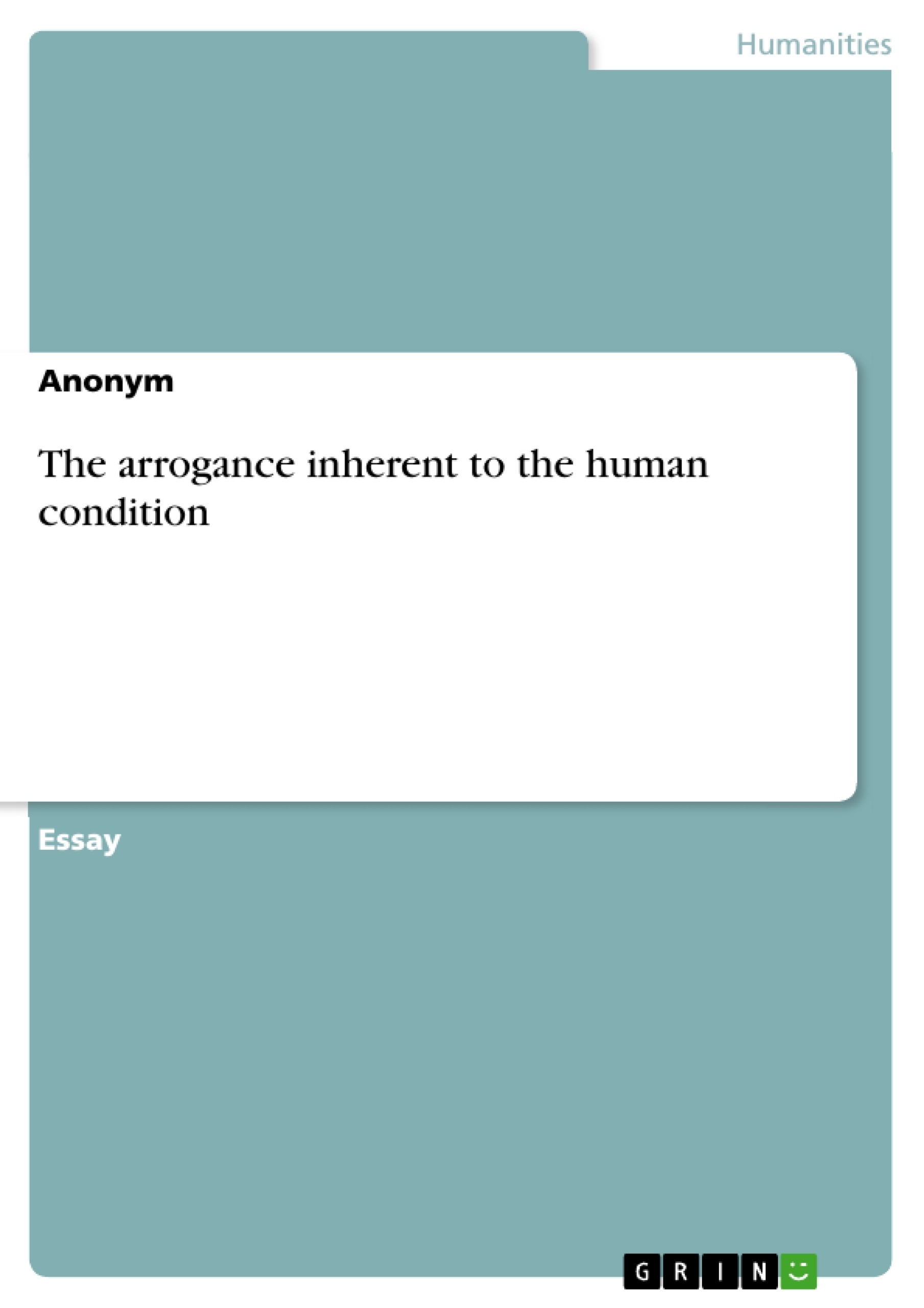An essay on the arrogance inherent to the human condition.
When one claims to understand the world, there comes a certain confidence with that statement. How is it possible to have a belief someone doesn’t actually believe in? By definition, it is a contradictory statement. So, each individual has certain beliefs which they have total confidence in. The sum of all individual beliefs of an individual form the worldview through which one perceives the world. This worldview, in turn, influences every single decision one makes.
This is better understood with an example. When one uses the word ‘sun’, it is pretty clear what one means. One is nearly always referring to the star around which our planet revolves. On the surface, it seems obvious. How can anyone think of anything else when you use the word ‘sun’? However, there is a difference between the denotation and the connotation of the word. For each individual on the planet, there is a different connotation behind the word. That is due to the fact that no two people are the same. It does not matter if people are brought up with the same values, the same family, or even very similar genetics in the case of twins. The word will always have a different connotation for each person, noticeable in some instances and not noticeable in others.
For example, one person from a hotter part of the world might associate the word with feelings of nostalgia, while people coming from freezing climates could associate it with desire. The point being, this can be done for every single objective concept, thought, word. Hence, we have no choice but to believe that while there does exist an objective world we all share, there is also a perception of the world which is different for each person. Hence, the world loses all objectivity. Who am I to claim the sky is blue when to a colour-blind person it is grey? It is easy to claim the colour-blind person in this example is wrong, but why is the real question. Are they wrong because we can claim with certainty the sky is blue, or is it because to most people the sky is blue, and hence that is the truth?
Inhaltsverzeichnis (Table of Contents)
- On Thought: An essay on the arrogance inherent to the human condition
- On the Certainty of Beliefs
Zielsetzung und Themenschwerpunkte (Objectives and Key Themes)
The essay “On Thought” explores the inherent arrogance of the human condition, stemming from our tendency to believe we fully understand the world and our place in it. It examines how our individual worldviews, formed by personal experiences and beliefs, influence our perceptions and actions. The essay further delves into the concept of individual truth, demonstrating how our subjective interpretations of the world create a unique perspective for each person.
- The Arrogance of Human Understanding
- The Role of Individual Worldviews
- The Concept of Individual Truth
- The Limitations of Human Perception
- The Implications of Subjective Reality
Zusammenfassung der Kapitel (Chapter Summaries)
- On Thought: An essay on the arrogance inherent to the human condition: This chapter examines the notion that claiming to understand the world implies a certain arrogance. It argues that our individual worldviews, shaped by personal experiences and beliefs, are subjective and inherently different for each person. The chapter illustrates this concept through the example of the word “sun”, highlighting how the denotation and connotation differ for each individual. The author concludes that the objectivity of the world is lost due to the inherent subjectivity of individual perception.
- On the Certainty of Beliefs: This chapter explores the implications of having individual worldviews that we hold with absolute certainty. It argues that conflicting worldviews highlight the possibility of being wrong, challenging the notion that we can be one hundred percent sure of our beliefs. The author uses the example of Adolf Hitler to demonstrate that even the most evil actions can be justified within a specific worldview, emphasizing the subjectivity of right and wrong. The chapter concludes by questioning the validity of claiming to understand anything with absolute certainty.
Schlüsselwörter (Keywords)
The essay explores the themes of human arrogance, individual worldviews, subjective perception, individual truth, and the limitations of human understanding. It critically examines the concept of certainty and the implications of having conflicting worldviews. The text uses examples like the word “sun” and the case of Adolf Hitler to illustrate its key arguments.
- Citation du texte
- Anonym (Auteur), 2022, The arrogance inherent to the human condition, Munich, GRIN Verlag, https://www.grin.com/document/1275392



